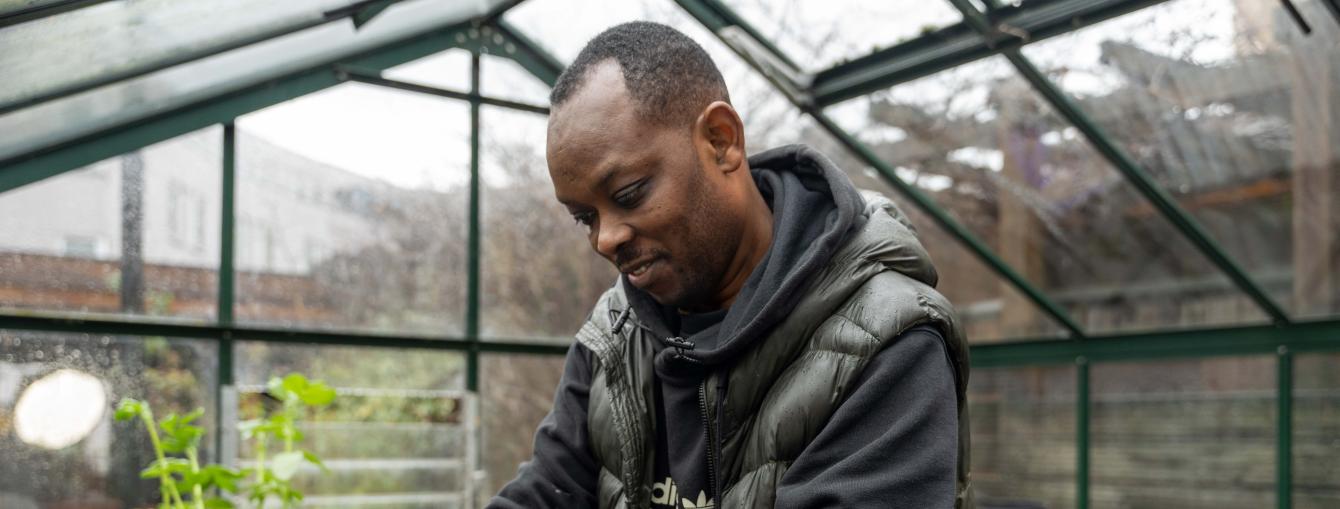Therapy and support services
Torture causes long-lasting mental and physical pain. It can take many years for someone to recover from it. Our aim is to help people come to terms with their experiences and enjoy lives that are as full and happy as possible.
Our counsellors, psychotherapists, doctors, care coordinators and pain management specialists help people through the long recovery journey. We offer one-to-one therapy, group activities and other support including for physical pain.
Our services are offered to men, women, children and young people, as well as to families and couples.
Please note, we are not a crisis service. If you are experiencing a mental health emergency visit the NHS website for information on getting urgent help.
What we treat
We help people recover from complex post-traumatic stress disorder (PTSD), depression, anxiety and other problems caused by torture.
Therapy with us
To heal from the trauma of torture, we work with people through the three main stages of recovery.
- Stabilisation: helping people feel safe and secure in their current situation and giving them tools to manage the symptoms of PTSD, such as grounding.
- Trauma-focused: helping them to come to terms with the traumatic events. We deliver therapies to help people process the memories of trauma, to help reduce the symptoms of PTSD.
- Reintegration: helping people move on from their experiences, look to the future and reconnect with others.
We offer psychological therapies specifically for trauma, such as:
- Eye movement desensitisation and reprocessing (EMDR)
- Narrative exposure therapy (NET)
- Trauma-focused cognitive behavioural therapy (CBT)
We also offer other therapies such as:
- Psychodynamic therapy
- Systemic therapy
- Integrative psychotherapy
- Group therapies
Activity groups
We provide a number of creative and group activities across our centres, including gardening, music, art, football and cooking.
These activities have excellent health and social benefits for people who have fled torture and been forced to leave their friends and family behind.
Other types of care
People who have been tortured often have many health problems and may struggle to tell their GP all the details in a ten-minute appointment.
In every centre, our doctors can provide health assessments to help people go through everything they’re experiencing. Our doctors can also assist GPs and make recommendations.
Torture can leave people with lasting pain, reminding them of the terrible things that happened to them. We help people manage their pain through a pain management service where we offer therapies such as physiotherapy.
Interpreting
It can be hard to explain torture and everything that has happened in a second language. We provide an interpreting service to people receiving therapy from us. Being able to feel truly understood and listened to allows people to begin to heal.



